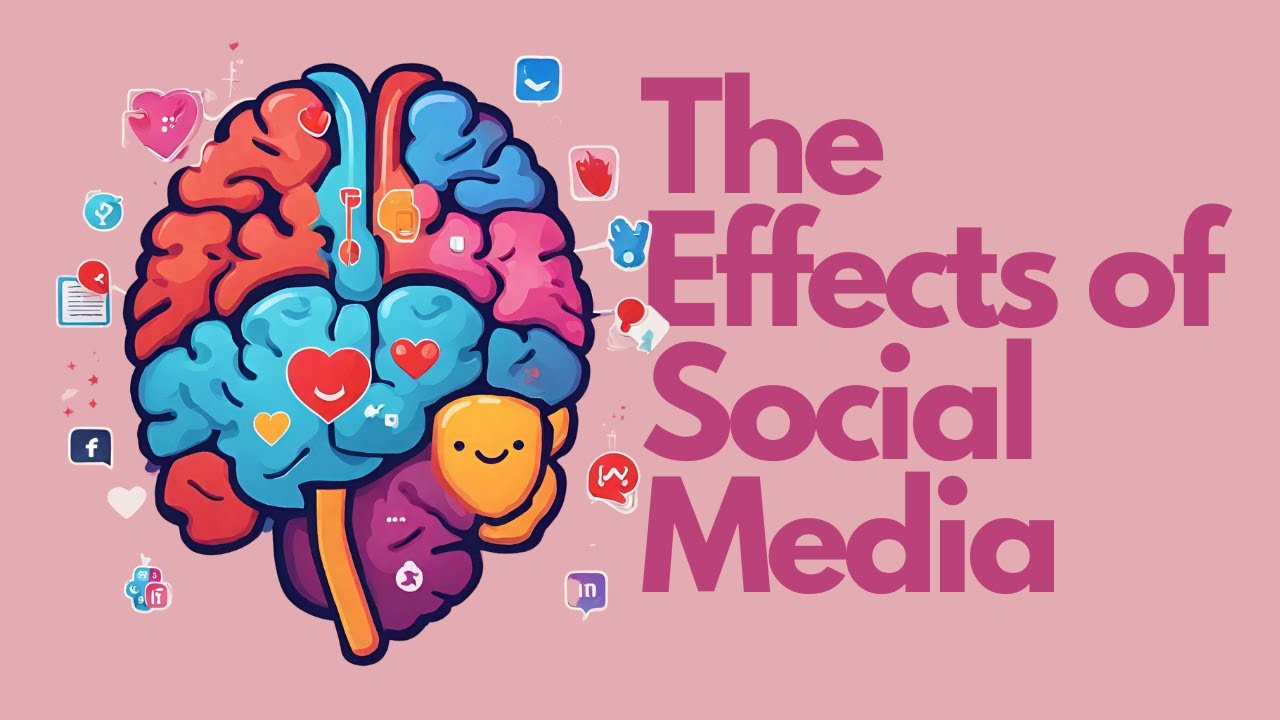The Psychology of FOMO: How Social Media Triggers Anxiety and Affects Your Life
Summary
TLDRThis video explores the modern phenomenon of FOMO (fear of missing out), emphasizing its link to social media and its potential effects on mental health. It discusses how constant exposure to others' lives can lead to anxiety, envy, and dissatisfaction. The video offers practical strategies to combat FOMO, including practicing mindfulness, curating a positive digital environment, and taking digital detoxes. By finding balance and setting boundaries, viewers can improve their mental well-being and develop healthier social media habits.
Takeaways
- 😟 FOMO, or Fear of Missing Out, is a common modern phenomenon, especially among young people, driven by social media.
- 📱 Social media amplifies FOMO by showcasing the exciting activities, accomplishments, and experiences of others, which can lead to feelings of inadequacy.
- 🧠 Constant comparison to others on social media can negatively impact mental health, causing anxiety, stress, and depression.
- 💬 Social media often portrays a skewed version of reality, with highlight reels of perfect moments that don't reflect everyday life.
- 🧘 Mindfulness is a powerful tool to combat FOMO, helping individuals focus on the present moment and appreciate their own experiences.
- 🍽️ Curating your digital diet involves intentionally choosing the content you consume and unfollowing accounts that trigger negative feelings like envy or inadequacy.
- 🔌 A digital detox, or temporarily disconnecting from social media, can help reset mental health and reconnect with the offline world.
- ⚖️ Finding balance in social media usage is crucial, including setting time limits and engaging in fulfilling offline activities.
- 🌿 Pursuing hobbies, spending time with loved ones, and enjoying nature can help reduce reliance on social media and its potential negative effects.
- 💡 Taking charge of your digital well-being is essential, using social media mindfully and setting boundaries to prioritize mental health.
Q & A
What is FOMO, and why is it increasingly common today?
-FOMO, or the fear of missing out, is the feeling that others are experiencing exciting events or opportunities that you're not part of. It's increasingly common due to social media, which amplifies this sensation by constantly showing the activities and accomplishments of others.
How does social media contribute to FOMO?
-Social media platforms create a constant stream of updates about others' activities and successes, leading to comparisons. This can make users feel inadequate or envious, increasing the likelihood of FOMO.
Why does FOMO thrive in modern society?
-FOMO thrives due to our natural desire for social connection and belonging, and social media gives us continuous insight into the lives of our friends, family, and even strangers, feeding that desire.
What mental health impacts can FOMO have?
-FOMO has been linked to anxiety, depression, stress, and a constant state of dissatisfaction. It can also lead to sleep disruption, restlessness, irritability, and lower self-esteem.
How do social media algorithms exacerbate FOMO?
-Social media algorithms prioritize content that captures attention, often evoking envy and desire. This can make FOMO worse by constantly showing others' seemingly perfect lives and luxurious experiences.
What is mindfulness, and how can it help combat FOMO?
-Mindfulness involves focusing on the present moment without judgment. By concentrating on current experiences and practicing gratitude, mindfulness helps reduce the urge to compare with others, thus lessening the impact of FOMO.
What is the concept of a 'digital diet,' and how does it relate to managing FOMO?
-A 'digital diet' involves curating your social media feed by unfollowing or muting accounts that trigger negative feelings like envy or inadequacy. By controlling the content you consume, you can create a more positive and balanced online experience, reducing FOMO.
What is a 'digital detox,' and how does it help with FOMO?
-A digital detox is a break from social media and digital devices, allowing you to reconnect with offline experiences. By stepping away from the constant stream of online updates, you can reduce feelings of comparison and rediscover personal joy and fulfillment.
How can setting boundaries around social media usage help manage FOMO?
-Setting boundaries, such as time limits for social media use or designated times to check feeds, can help manage FOMO by reducing mindless scrolling and giving you more control over your digital habits, promoting a healthier balance.
What is the overall message of the script regarding FOMO and social media?
-The script emphasizes that FOMO, driven by social media, can have negative mental health impacts. By practicing mindfulness, curating digital consumption, taking digital detoxes, and finding a healthy balance, individuals can take control of their digital well-being and reduce the effects of FOMO.
Outlines

Cette section est réservée aux utilisateurs payants. Améliorez votre compte pour accéder à cette section.
Améliorer maintenantMindmap

Cette section est réservée aux utilisateurs payants. Améliorez votre compte pour accéder à cette section.
Améliorer maintenantKeywords

Cette section est réservée aux utilisateurs payants. Améliorez votre compte pour accéder à cette section.
Améliorer maintenantHighlights

Cette section est réservée aux utilisateurs payants. Améliorez votre compte pour accéder à cette section.
Améliorer maintenantTranscripts

Cette section est réservée aux utilisateurs payants. Améliorez votre compte pour accéder à cette section.
Améliorer maintenantVoir Plus de Vidéos Connexes

The Psychological Effects of Social Media: A Deep Dive

FOMO itu BAIK atau BURUK???? I Ada Apa sih? Eps. 14

Dampak Negatif Pemakaian Media Sosial, Pahami Dulu Istilah Doom Scrolling

Fear of Missing Out Explained: 7 Ways to Kill Your FOMO

Standar TikTok: Realita dibalik Ilusi Media Sosial Perusak Kehidupan

O impacto das redes sociais na sua saúde mental | Aula com Mari Baroni Psicóloga | Detox Digital
5.0 / 5 (0 votes)
